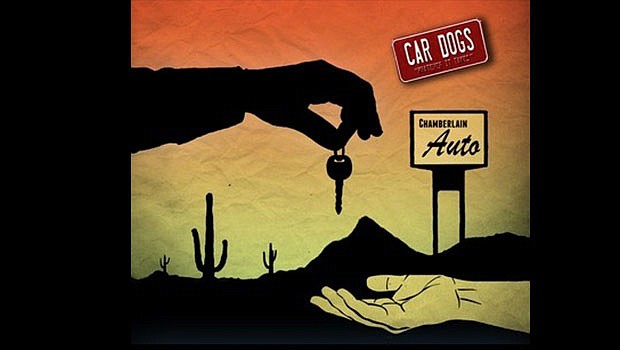- November 24, 2024
-
-
Loading

Loading

As anyone who's ever purchased a car will tell you — it's a stressful ordeal. The auto-sales industry is an intimidating one, in which consumer, salesman, dealership and manufacturer are all pitted against one another, each vying for the upper hand in this unnerving game of poker-faced manipulation and negotiation.
From the consumer's perspective, the goal is to get the best deal possible — without getting the wool pulled over your eyes. But what really goes on behind the scenes? Unless you have inside knowledge, it's almost impossible to know.
Enter "Car Dogs."
Playing at 2 p.m. this Friday, at Hollywood 20, this feature film, starring Patrick J. Adams, Octavia Spencer, George Lopez and others, tells the story of a sales manager at a car dealership who's willing to do whatever it takes to get his own dealership.
Written by Mark Edward King, who grew up in the business, this film takes an inside look at the inner workings of an industry that everyone has some experience with, but likely very limited knowledge of.
We recently chatted with director, Adam Collis, who told us about the film's unique inception, the mystique surrounding car sales and how working with executive producer and Sarasota resident James Miller was "a godsend."
How did this film come about?
I was a visiting film professor at Arizona State University, and I wanted my students to have the opportunity to get production credits and be on a real film set. So, half jokingly, I said to my boss, "Why don't we make a feature film?"
Well, he took me seriously. The next thing I knew, we were making a feature film with 85 Arizona State students and some major names attached to it. I was so proud that these students got to learn on an actual film set and not only get academic credit, but get their first feature-film credit; that's such a hard thing to get.
How did you land on this particular script?
That's another nice part of the story; the script writer was a student of mine from eight years prior. When he first showed it to me, it was a short, based on his own life. He grew up in Scottsdale, near Arizona State, working at a car dealership.
I thought it was amazing, but he was never able to get it made. So when my boss was asking about scripts, it all came full circle, and I thought of that script from my former student.
What about the script stood out to you?
It was so intense and dramatic. It really captured the drama and intensity of this universe, and it felt so authentic. It's a very exciting look behind the curtain of this industry that every American has encountered but probably doesn't know a lot about. Buying a car is almost a rite of passage in America, so it's fun to peek into that universe and see how things really work behind the scenes.
Why do you think people will be able to relate to the story?
I think there are universal themes in the story. I love the look at the dog-eat-dog nature of ground-level capitalism. There's such an enormous ethical responsibility responsibility in order for capitalism to work correctly. At its core, this is a morality tale about the challenges that come with this particular industry.
I think a lot of people will relate to the main character's journey, and his struggles with work and family. I think they'll also learn a lot about how this industry really works — the sales bonuses the salesman get and what goes into the negotiations and making the sale.
What was the most interesting thing you learned about the car business?
Oh, man, I learned so much. It was really interesting to think that buying a car is sort of the last remaining consumer-level bartering system in America. You don't go to the grocery store and haggle over the price of your pack of gum. It's the one arena still like that, as far as mass consumption goes, and it's fascinating.
I understand there's a Sarasota connection with this film; what was it like working with executive producer and Sarasota resident, James Miller?
Are you familiar with the term, "deus ex machina?" It's an old Greek theatrical plot device, in which, at the last minute, a seemingly unsolvable problem is suddenly and miraculously fixed. It literally means "machine of the gods."
James Miller was our deus ex machina. He was an absolute godsend, and he undoubtedly saved this film — period. We're forever grateful to him for all his help.
What do you hope audiences will take away from the film?
I hope they find it entertaining, fun and engaging, and maybe they'll stop and reflect on the work/family struggles in their own lives.